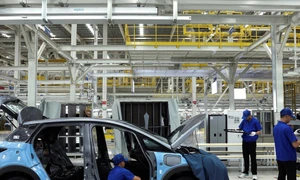
MAS reiterated its 2023 projections for core inflation – which exclude accommodation and private transport costs – to average 3.5 to 4.5%, and headline inflation to average 5.5 to 6.5%. The major reason is the significant rise in prices of many imported goods and services.
According to MAS, the Singapore economy will grow at a slower pace in tandem with weakening global demand. However, core inflation will stay elevated over the next few quarters, as imported inflation remains significant and a tight labour market supports strong wage increases.
Inflation is projected to ease more discernibly in the latter half of 2023, although there is considerable uncertainty around the outlook for both inflation and growth, it added.
Statistics showed that core inflation in Singapore in September rose to 5.3%, the highest in 14 years, mainly due to the increase in prices of food, services and retail and other goods. The figure was higher than the 5.1% in August. Meanwhile, the consumer price index, or overall inflation, for September was 7.5%, unchanged from August.























